Azurite
Cu3(CO3)2(OH)2
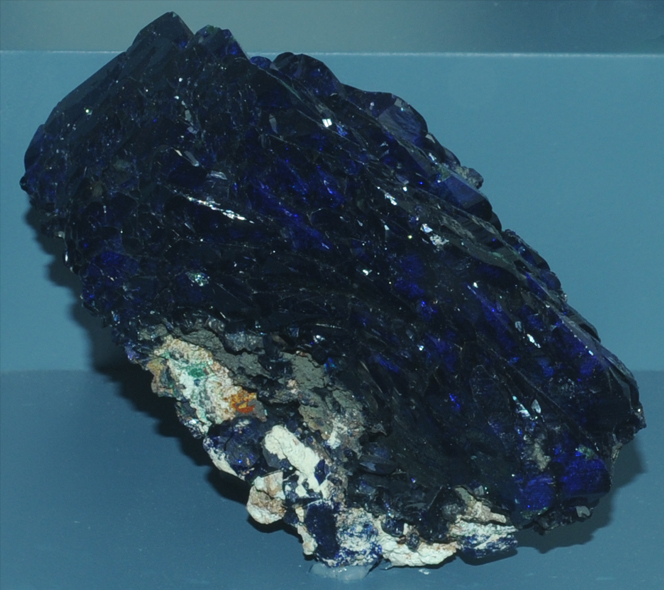 | One of the mineral forms of metallic copper is azurite. It is a carbonate mineral of copper with the chemical composition Cu3(CO3)2(OH)2. The sample shown is about 6x12 cm. It is from Bisbee, Arizona. All of the samples pictured here are on display at the Smithsonian Museum of Natural History. |
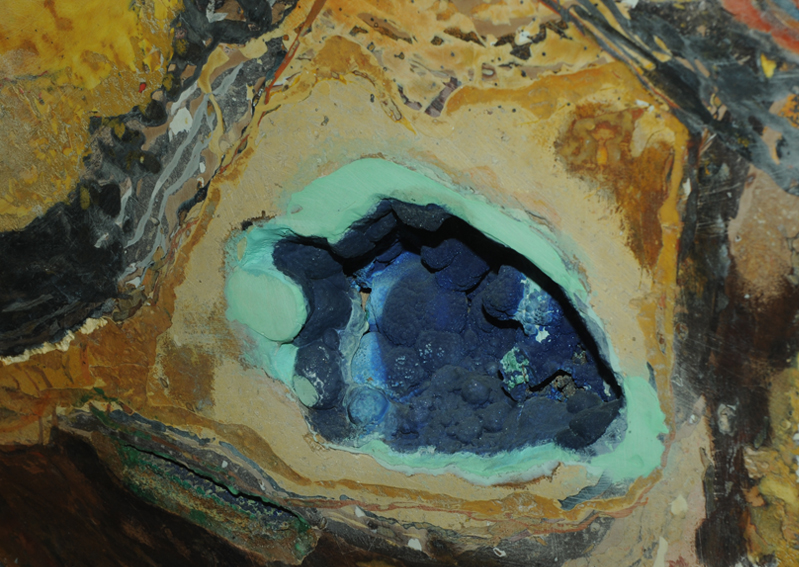
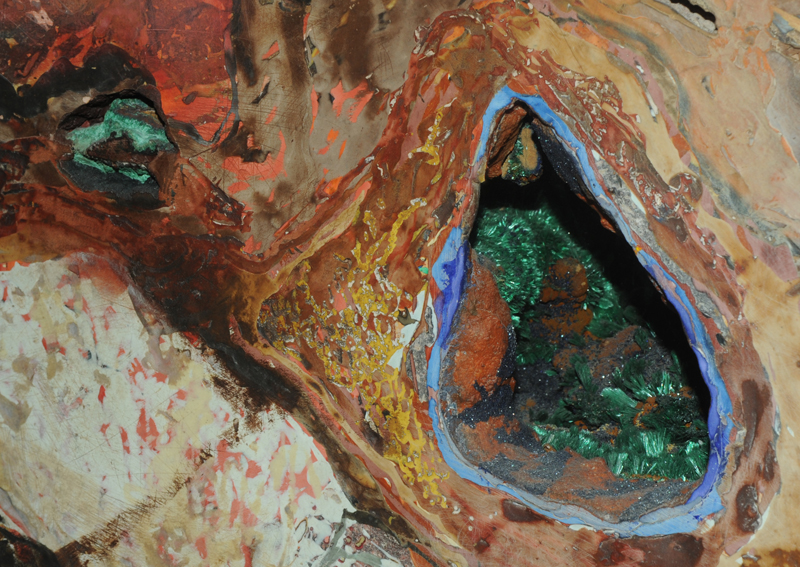
These images are two parts of a section of a wall of a cave near Bisbee, Arizona. It is on display at Smithsonian Museum of Natural History. It shows the blue of azurite and the green of malachite.
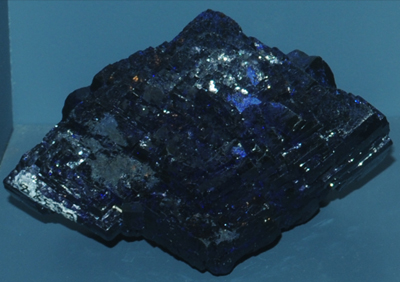 Two more azurite samples from Bisbee, Arizona. They are both about 10cm across. | 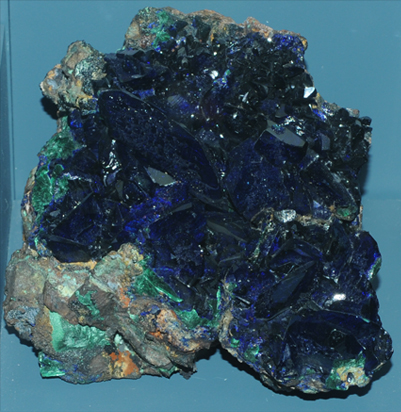 |
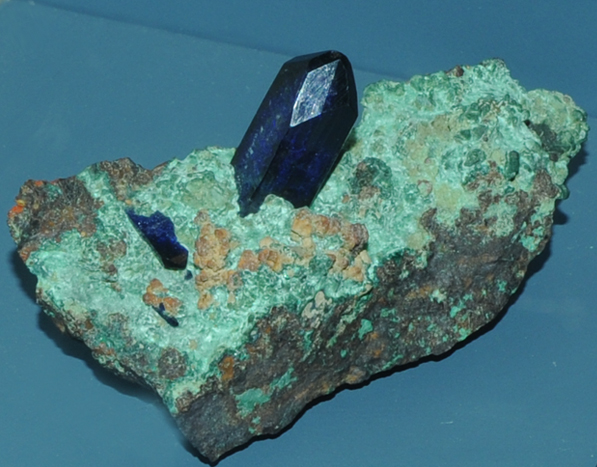 The sample shown above is about 20 cm long. It has an azurite crystal and a base containing another mineral form of copper, malachite. |
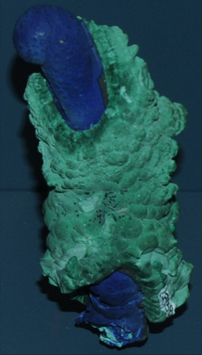 This sample is another example of blue azurite forming with green malachite. It is from Bisbee. It is about 9 cm high. |
The azurite is characteristically blue. The green color is characteristic of malachite. This is another sample from the Copper Queen mine in Bisbee, Arizona. It is about 13 cm across. | 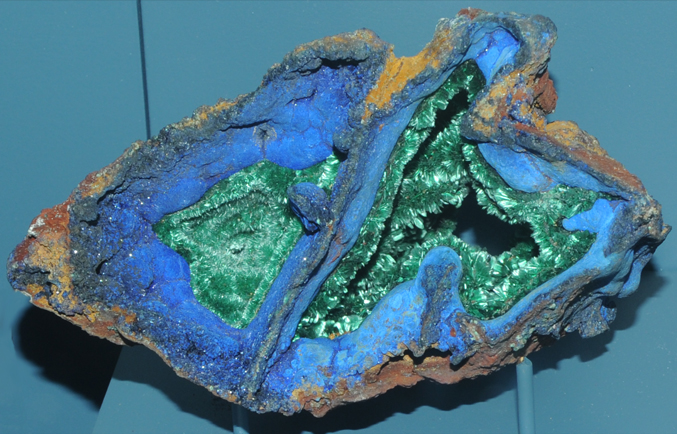 |
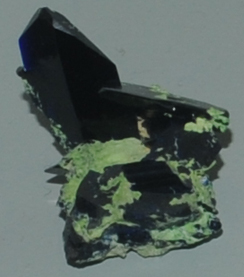 | These azurite crystals are from Tsuneb, Namibia. The sample is about 5cm high. |
This is a significantly larger sample, with vertical dimension probably 35 cm. It has azurite crystals on a base of malachite. It is from the Copper Queen mine, Bisbee, Arizona. | 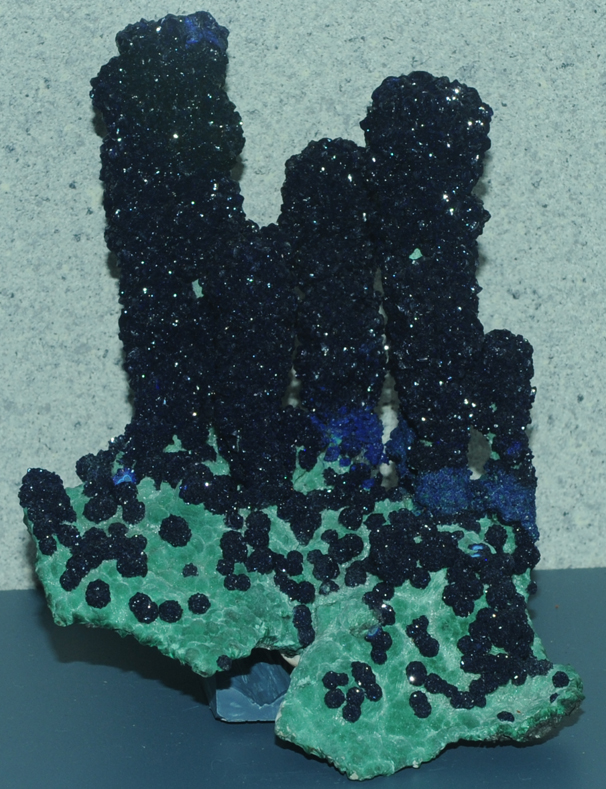 |
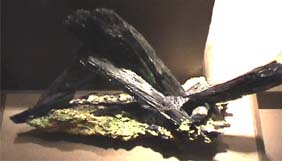 | This is a large sample of azurite on a base which contains some malachite. The sample size is about 18x14 cm. |
An azurite crystal on a bed of malachite. This sample is from Bisbee and is about 16cm wide. | 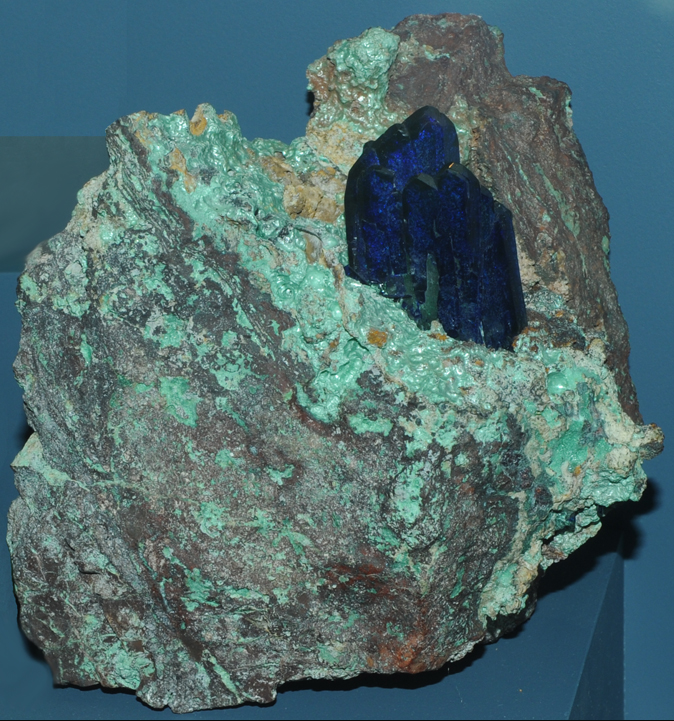 |
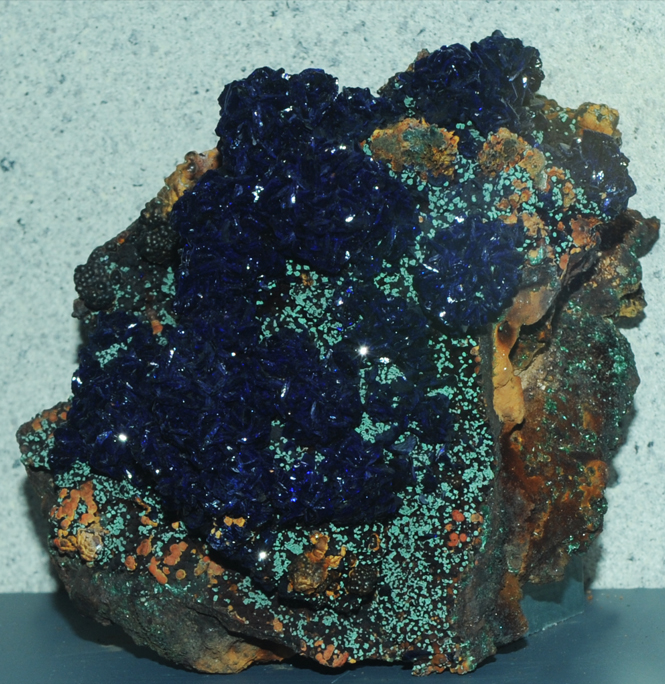 | This azurite sample is from the Copper Queen mine in Bisbee. It is about 16cm wide. |
Also from the Copper Queen mine, this azurite sample is about 38cm wide. Malachite is also evident. | 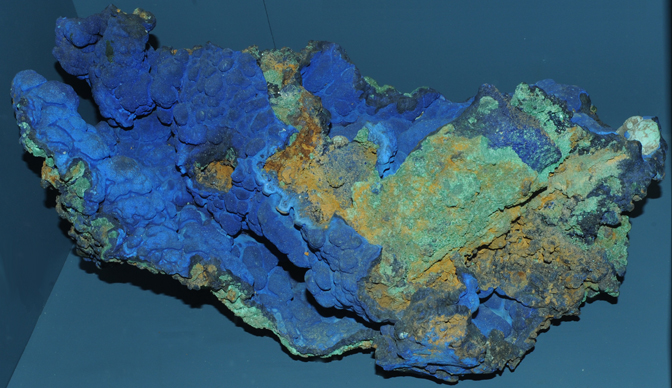 |
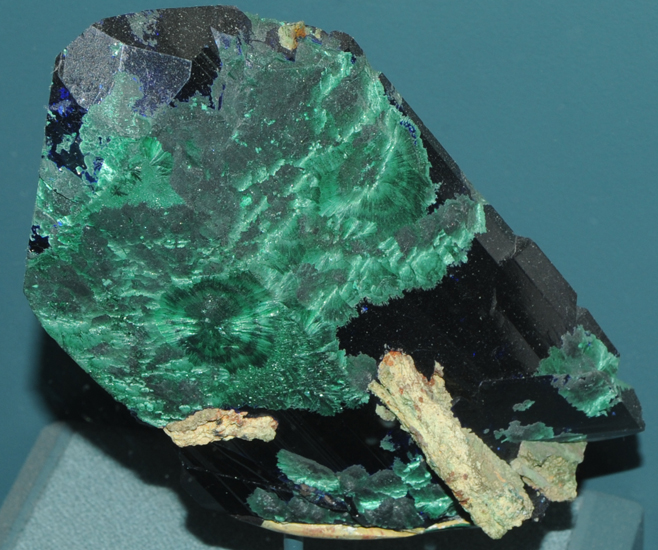 | This large azurite crystal is about 16 cm long. After the azurite formed out of copper-rich water, the composition of the solution changed, turning some of the azurite into the green malachite. This sample is from Tsumeb, Namibia. |
Also from the Copper Queen mine, this azurite sample is about 14 cm long. | 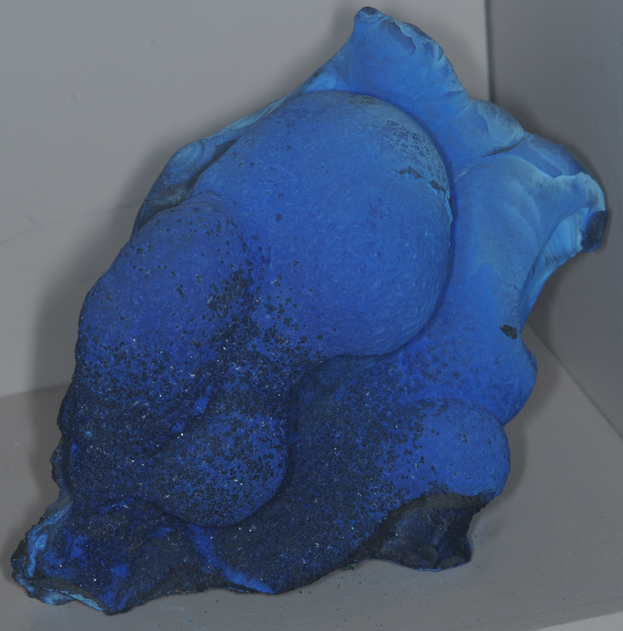 |
Mindat: Azurite
Most of these azurite samples are from Bisbee, Arizona and in particular the Copper Queen mine. The Bisbee mining locality is famous worldwide for the diversity and magnificence of its minerals. Bisbee has produced over 200 kinds of minerals, most notably azurite, malachite and other copper minerals. Many of these samples are part of the Douglas Collection. They were collected by James Douglas (1837-1918), a principal mine owner in Bisbee. About 200 specimens were donated to the Smithsonian by his son, James S. Douglas.
| Minerals |
| Selection of common minerals |
| HyperPhysics*****Geophysics | R Nave |